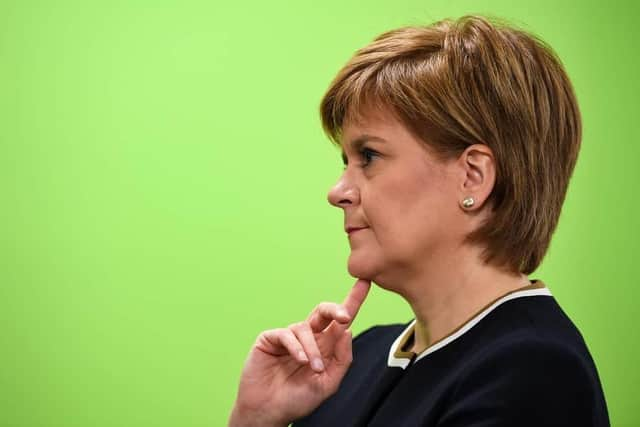Economic fallout from mini-budget potentially worse than 2008, warns Nicola Sturgeon
The First Minister warned of an “unfolding and rapidly deteriorating economic and financial crisis” as she gave evidence to a special Holyrood committee.
She said UK Chancellor Kwasi Kwarteng’s decision to abolish the top rate of income tax for those earning £150,000 a year or more should be immediately reversed.
Advertisement
Hide AdAdvertisement
Hide AdThe Bank of England was forced to step in on Wednesday, announcing plans to buy government bonds in a bid to avoid what it called a “material risk to UK financial stability”.


The intervention followed criticisms from across the political spectrum and an extraordinary statement from the International Monetary Fund (IMF) in relation to the Chancellor’s tax cutting plans.
On Friday, Mr Kwarteng announced the UK Government would scrap the top rate of tax and cut the bottom rate to 19p in the pound – an announcement which sent the pound to its lowest level against the dollar in history. Income tax rates and bands are devolved in Scotland.
On Tuesday night, the IMF said it was “closely monitoring” the situation and urged the Chancellor to “re-evaluate the tax measures”.
Speaking to a group of Holyrood’s committee conveners, Ms Sturgeon said: “I think it is quite hard to overstate the impact that Friday’s budget will have on poverty, inequality and the financial stress that millions of people are going to be living under.”
She said the wider impacts of the budget “are likely to be much greater than those immediate impacts”, adding: “Obviously since Friday we’ve seen the collapse in the pound, that will fuel inflation, which will make the cost-of-living crisis worse.
"We’re already seeing the cost of government borrowing increasing but there is now, I think, the inevitability of a sharp rise in interest rates, which is going to have a very profound impact on those with mortgages, those with credit card debt, and that will push more people into very serious financial stress.
"We’ve had warnings in the last 24 hours from the IMF. We’ve just had the quite extraordinary – that’s a word that’s overused in political discourse, I think it’s appropriate this morning – intervention of the Bank of England, concerned about serious financial instability.”
Advertisement
Hide AdAdvertisement
Hide AdMs Sturgeon added: “It is really extraordinary and unprecedented and I do think there needs to be very urgent and immediate action taken.
"I don’t think we should see the policies announced on Friday as inevitable now – I think as an immediate symbol of some kind of good sense being restored, the decision to abolish the top rate of tax should be reversed.”
The First Minister continued: "The UK as we speak right now is in the midst of an unfolding and rapidly deteriorating economic and financial crisis.
"It’s going to be ordinary people who pay the price of that.
"I don’t think we’ve had a more serious economic situation, possibly even including 2008, which was a global financial crash, but in the UK probably not a more serious situation in our memories.”
Ms Sturgeon’s comments came as her deputy, John Swinney, who is in control of the Government’s finances while Finance Secretary Kate Forbes is on maternity leave, said he was “very concerned” about the IMF statement.
Comments
Want to join the conversation? Please or to comment on this article.
